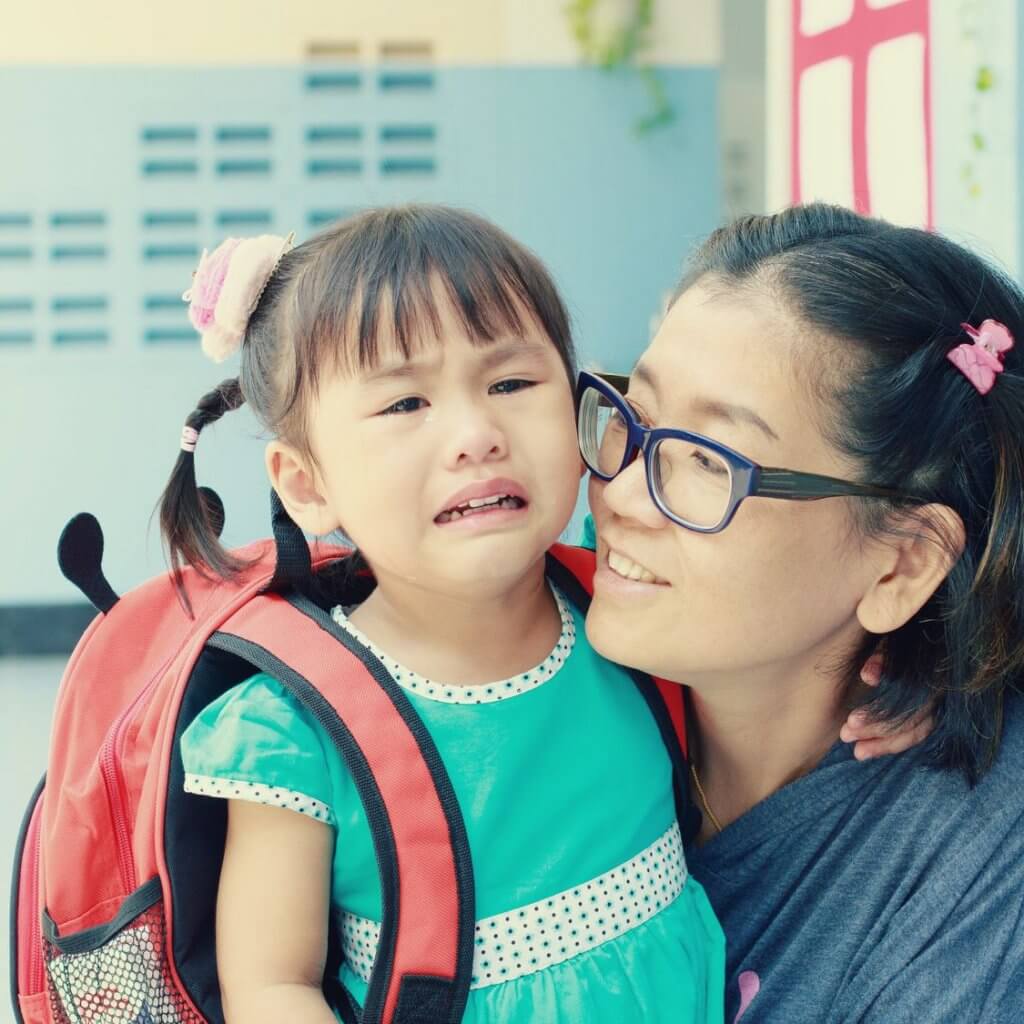Tips for Making the First Day Back to School That Much Easier

One of the largest steps your child will take is the jump into formal education. Odds are your child has spent the majority of his or her time spent at home learning the basics of life, playing with his or her favorite toys, and running around the backyard. For the first time in your child’s life, he or she will be routinely spending time away from home, interacting with dozens of other children, and be receiving education from instructors that aren’t family members or close friends. That’s quite the load of adjustments for your little one! If you’re finding yourself (understandably) nervous for your child’s first introduction to the education system, here are six tips and secrets that can help your child ace their first day back to school.
Take some time to practice
As a parent, you most likely have an idea of what to expect going into a school environment. Your child, however, will be immersed in a very unfamiliar surrounding. You can ease this transition by focusing on very specific nuances of a school setting to master before your child has even stepped through the door.
Take some time towards the end of the summer with a desk and a cubby set up for your child and have your child practice entering a room and hanging their coat up in the cubby and setting up their school supplies in their desk. Your child may be asked to introduce themselves of the first day, which can be intimidating.
Practice with your child how to answer questions about themselves, such as their favorite color, how old they are, or what their favorite TV show is. If your child will be bringing their own lunch, practice eating out of a lunchbox and figure out which meal choice will be optimal and convenient for bringing to school. Make sure the items that are easy to open, are close to what they normally eat at home, and make sure they know which items to store back in their lunchbox and bring back home.
You can also call the school and get an idea of what your child’s daily schedule will look like. You can start introducing aspects of the schedule, such as snack time, arts and crafts, or even recess, in a similar timeframe the school will offer them. This will help ease your child’s anxiety when you explain that the day will be similar at school.
Help your child get a lay of the land

Take your child to the school beforehand, show them the playground, show them where you will be dropping them off each day, and get them familiar with the location they will be spending a lot of their time before the big day arrives. You can even make it a routine location for play days and fun activities to help your child associate the school as a place of fun.
You can also see if the school allows for tours during the summer. This situation is ideal since you can show your child exactly where each important place is, such as the bathrooms they will use, the cafeteria, where the cubbies are in the rooms, and where they will likely sit when they first enter the room on the first day.
All of this will greatly ease your child’s nerves of entering the school for the first time. Getting as familiar with the school as possible before the first day of school also helps you avoid some public tears. If you can’t schedule a tour of the school you will likely have to help your child make sure they know where the bathrooms they need to use are, show them the cubby, and point them to their desk before you say goodbye. After this point, you won’t want to hang around much longer before the process of saying goodbye becomes that much more difficult. If you’ve prepared before, you won’t have to.
Create a signal for when they get nervous
Part of being a kid is learning how to express emotions in a healthy way. It’s a lot to ask your child to always be able to verbally speak what they are feeling. However, negative emotions that build up will often show themselves in the form of crying, tantrums, or meltdowns.
A solution to this dilemma is to create special signals between you and your child that you can both be aware of the first day of school. You tell them that a squeeze on the pinky means they are nervous, and perhaps two squeezes back from you means “I love you” or “Everything will be alright.”
If this happens before you make your way into the school, you can know to stop for a minute to give a little pep-talk, hand them a soothing toy they can play with for a bit, or simply give them a reassuring hug. Assure them that this feeling is normal and it will get easier as time goes on.
Create a goodbye ritual

The start of a new era is the perfect opportunity to create a new tradition. Creating a tradition of a goodbye ritual for when your child goes off to school is a great way to ease the emotional stress both you and your child will likely experience. You can choose to make this very simple, such as a specific phrase you say when you leave, or you can try getting creative with it.
Whatever you choose as your goodbye ritual, make sure it is practical, special to you and your child, and something that brings the both of you comfort. One idea is creating a secret handshake you and your child do when you leave, and when you pick them up. You also can have them pick from a list of fun activities to do when they get home after school.
It also may be fun to slip special surprises for them to find in their lunchboxes, such as a special note or word game to remind your child you love them throughout the day. Whatever you choose, it’s best to make your goodbye ritual something comforting and reassuring. Connecting your goodbye ritual to when you arrive is a way to associate your leaving with the knowledge that you will always return.
Try to make a new friend yourself
Your child will no doubt be thinking of how to make new friends and be either eager or nervous to meet fellow classmates. This desire for friendship and companionship is great for their emotional health and for building life skills.

However, it may be just as important for you to be on the lookout for a friend too. While your focus will certainly be on your child for that day, there will be a great deal of value to taking some time to give your attention to fellow parents around you. While you are helping your child get their bearings in the classroom, take some time to say introduce yourself, ask if this is their first child to go to school, and get to know them a little.
By talking to other parents in the classroom, you will likely find comfort in the shared experience of dropping your child off for the first time. In addition to this, be sure to try to exchange contact information with at least a couple parents you meet. You could very well find a good friend that will be there to help support you through the process of bringing your child through school.
By making friends with other parents, you also have a great opportunity to introduce your child to classmates and potentially help them make friends too.
Don’t make the goodbye too hard
Seeing your child go off to school for the first time will no doubt be an emotional experience. In addition to ideas for goodbye rituals, there are other strategies to help make this process easier for both you and your child.
One of the most difficult elements to try to control is how long you stick around before you actually take off. Once you’ve taken some time to chat to other parents and helped your child find their way around the classroom, it’s best to leave as soon as you can. The longer you stick around, the harder it will be to save the tears until you make it to the car. The reason this is important for both you and your child is that if your child can visibly see your distress, it may increase their nerves and apprehension.
If you are able to model calmness as a parent in this situation, it will go a long way to bring a sense of calm to your child as well. It’s also important to not just slip out without saying goodbye. Doing this will simply create more anxiety in your child and damage trust. A direct, intentional goodbye establishes that you care and helps create a sense of school being a safe place.
Even with all of these strategies, don’t be surprised if your child gets emotional when you leave. Be prepared for the feeling of guilt for leaving them behind if they are crying, you are not a bad parent for this! This is normal and they will still love you once you return.
In the midst of all the nerves and adjustments involved with your child beginning school, remember that it is a positive milestone. It can be tough watching your child grow up and spend time away from you during the day, but it is a necessary step in maturing in a healthy way.
As much as there is to be prepared for when your child starts school, there is so much more to be excited about. Once you and your child have aced the first day, there’s nothing stopping you from helping your child thrive along with their journey through school.







